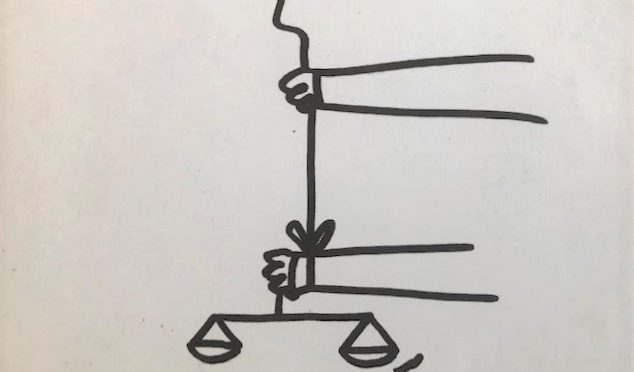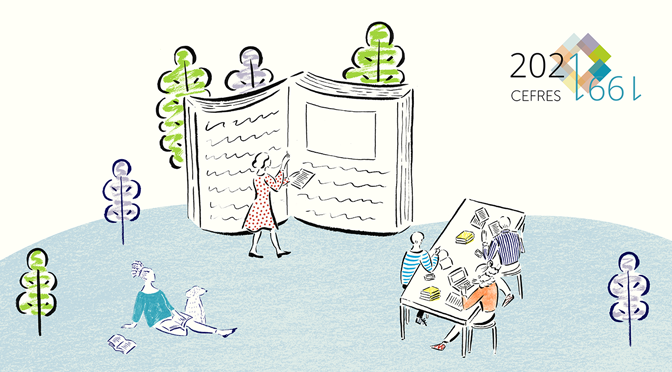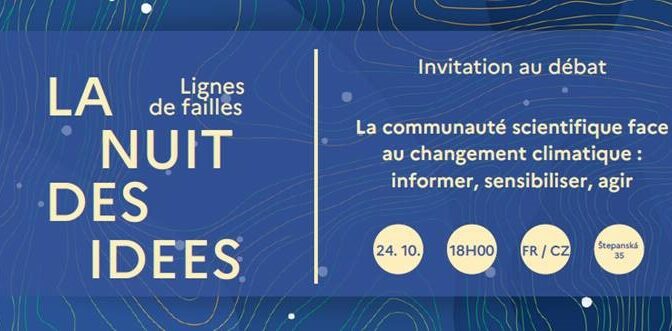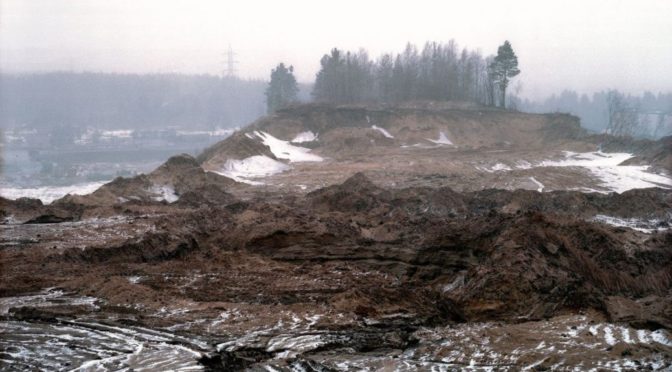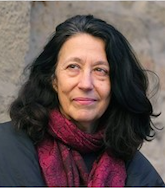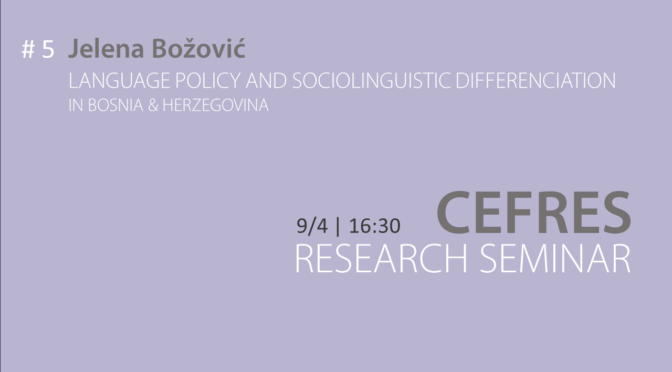Part 1 of CEFRES 30th Anniversary Conference
The French Center for Research in Humanities and Social Sciences (CEFRES) is celebrating its thirtieth anniversary this year. CEFRES has been both an actor and an observer of the reshaping of research in Central Europe after 1989. It has first accompanied the remarkable restoration of academic freedom and the takeover of its destiny by the academic world. Thirty years of activity in the heart of Central Europe have made CEFRES a witness to the growing importance of the European level in the structuring and financing of the research sector, to the internationalization and the intensification of international competition, and to the structural transformations that affect the social sciences and humanities. This is the reason why CEFRES and its privileged partners, the Czech Academy of Sciences and Charles University, as well as the CEFRES Alumni Association, are devoting this thirtieth anniversary conference to the great transformation of the academic world from the point of view of the recompositions of the relationship between academic knowledge and power, as well as to academic freedom.
The first part of the conference will be held in Prague in a hybrid format (face-to-face/remote) on May 27th and 28th 2021. It will be opened on Thursday, May 27th at 5 pm by an inaugural conference moderated by Mr Jérôme Heurtaux, Director of CEFRES, and introduced by Mr Clément Beaune, Secretary of State for European Affairs of the French government (by video), Ms Eva Zažímalová, President of the Czech Academy of Sciences, Mr François-Joseph Ruggiu, Director of the Institute for Humanities and Social Sciences at CNRS and Mr Tomáš Zima, Rector of Charles University, with, as guest of honour, Mr Michael Ignatieff, Rector and President of the Central European University. On Friday, May 28th, the conference will gather 26 representatives of the academic and diplomatic world, former directors and researchers of CEFRES, who will discuss past and future of the Czech-French relationship in the European context, the challenges of knowledge transmission and internationalization. The day will begin with a keynote lecture by Mr Pierre-Michel Menger, Professor at the Collège de France.
Dates: Thursday 27 may and friday 28 may 2021
Organizers: CEFRES, Czech Academy of Sciences, Charles University, CEFRES Alumni Association
Place: Prague and online (the conference will be streamed at this address: https://www.facebook.com/cefres)
To join the different sessions, please see the links below.
Languages: French, English, live interpretation in English
Participants: download the complete list of participants here.
Program
Thursday, May 27th 2021, 5:00 pm – 6:30 pm
Inaugural Round Table
Place: Czech Academy of Sciences – online
https://us02web.zoom.us/j/84680097684
Language: English
Please find the login code here: 846 8009 7684
Chair: Jérôme Heurtaux, Director of CEFRES
- Clément Beaune, Secretary of State for European Affairs of the French Government (by video)
- Eva Zažímalová, President of the Czech Academy of Sciences
- François-Joseph Ruggiu, Director of the Institute for Humanities and Social Sciences (InSHS), CNRS
- Tomáš Zima, Rector of Charles University
Guest of Honour:
- Michael Ignatieff, Rector and President of the Central European University
Friday, May 28th 2021
Place: Karolinum, Charles University rectorate, Prague & online
https://us02web.zoom.us/j/86543574454
Please find the login code here: 865 4357 4454
9:00 am – 10:30 am : Keynote Lecture (in English)
Chair: Tomáš Kostelecký, sociologist, member of the Academy Council of the Czech Academy of Sciences
- Pierre-Michel Menger, sociologist, Professor at the Collège de France, holder of the Chair “Sociology of creative work”: Scientific research: A matter of resources, performance, competition and collaboration
10:45 am – 1:30 pm: From Bilateral to European Level: CEFRES in its History
Chair: Nicolas Maslowski, sociologist, Director of CCFEF (Warsaw)
- Marie-Elizabeth Ducreux, historian, emeritus research Director at CNRS, former Director of CEFRES (1991–1993)
- Yves Saint-Geours, diplomat, former deputy Director of archeology and social sciences at the MEAE (1990–1993)
- Antoine Marès, historian, emeritus Professor at the Pantheon-Sorbonne University, former Director of CEFRES (1998–2001)
- František Šmahel, historian, medievalist, former Director of the Institute of History, then of the Center for Medieval Studies of Czech Academy of Sciences
- Pavel Baran, philosopher, President of the Scientific Council of the Czech Academy of Sciences, Vice-President of the Research, Development and Innovation Council of the Czech Republic
- Lenka Rovná, political scientist, Vice-Rector for European Affairs, Charles University
- Christian Lequesne, political scientist, Professor at Sciences Po, former Director of CEFRES (2004–2006)
Lunch
3:00 pm – 4:45 pm: Intergenerational Dialogues
Chair: Georges Mink, political scientist, emeritus research Director at CNRS, holder of the Chair of European Civilization and History in memoriam Bronisław Geremek at the College of Europe, Natolin, President of the ICCEES, former Director of CEFRES (2001–2003)
- Marie-Claude Maurel, geographer, Directrice d’études at EHESS, former Director of CEFRES (2006–2010)
- Taťána Petrasová, art historian, member of the Academy Council of the Czech Academy of Sciences from 2013 to 2021
- Gábor Sonkoly, historian, Professor at Institute of Historical Studies and Atelier, Department of Interdisciplinary History, ELTE University, Budapest
- Petr Horák, philosopher, emeritus Professor of the Czech Academy of Sciences, Professor at the University of Pardubice
- Milena Lenderová, historian, former Dean of the Faculty of Arts at the University of Pardubice
- Michel Perottino, political scientist, Professor at the Faculty of Social Sciences of Charles University, former General secretary of CEFRES
- Mátyás Erdélyi, historian, post-doctoral fellow at CEFRES
5:00 pm – 6:30 pm: Researchers Without Borders? Internationalisation and Research Trajectories, 1991-2021
Roundtable of the CEFRES Alumni Association (English)
Chair: Clara Royer, senior Lecturer at Sorbonne University, former director of CEFRES (2015–2018)
- Florence Vychytil-Baudoux, historian, doctoral student at EHESS, associated with CEFRES
- Pascal Marty, geographer, Director of the Maison française d’Oxford, former deputy Director of InSHS of CNRS
- Jana Vargovčíková, political scientist, junior Professor at INALCO
- Gilles Lepesant, geographer, research Director at CNRS
- Hana Fořtová, political scientist, translator, researcher at the Institute of Philosophy of the Czech Academy of Sciences
- Luděk Brož, anthropologist, researcher at the Institute of Ethnology of the Czech Academy of Sciences
- Eloïse Adde, historian medievalist, Marie Curie researcher at the Saint-Louis University in Brussels
You can download the program here.

